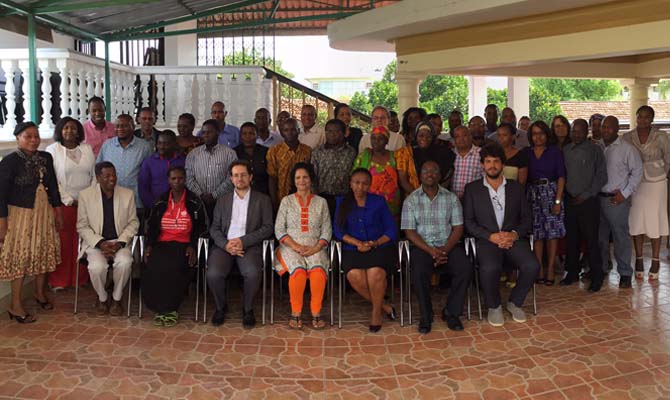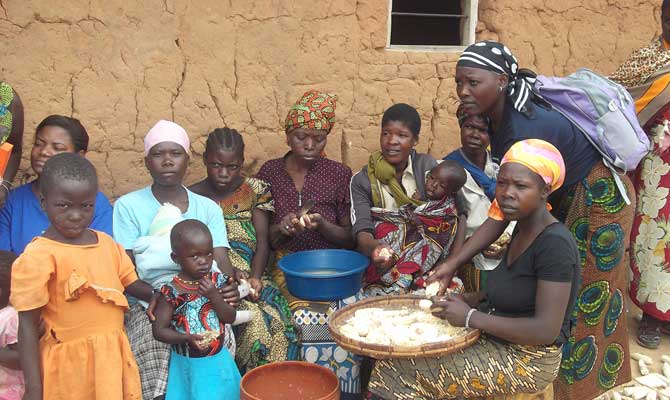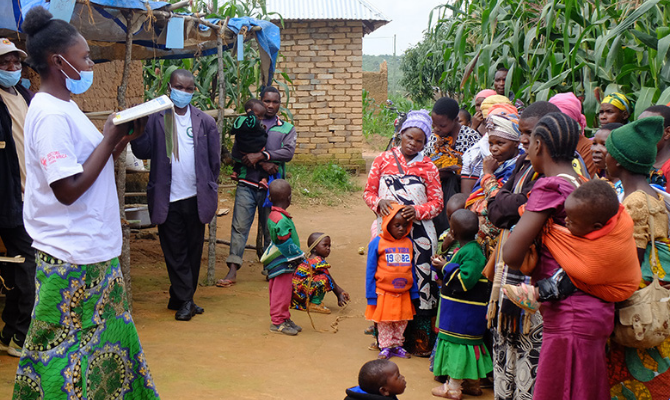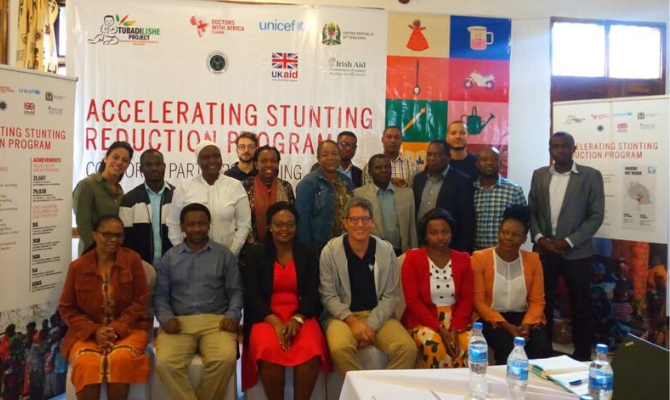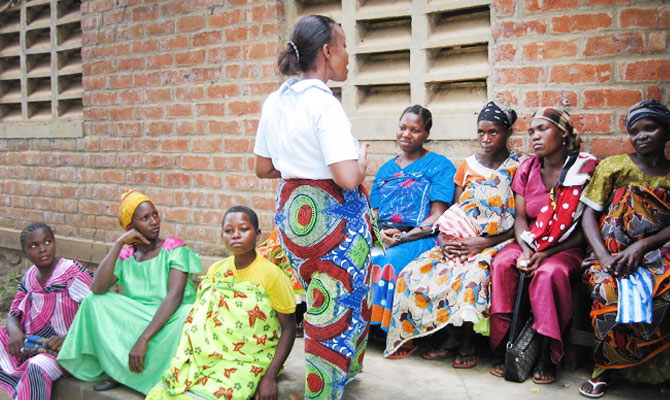On 17th Of December (Thursday), in Dar es Salaam, a workshop organized by Doctors with Africa CUAMM took place to discuss the first results of a research, conducted with UNICEF, on the role of first line health care providers in many African contexts: Community Health Workers (CHWs). The CHWs are prominent representative of the community who work on a voluntary basis with communities to promote health seeking behavior and to provide information on availability of health care services also in remote and peripheral area.
The research covered two regions of Iringa e Njombe in the Southern highlands in Tanzania, and was carried out within the framework of the “Strengthening Community Based Mother and Children Intervention in Iringa and Njombe Region”, an initiative funded by UNICEF, approved by the Ethical the National Institute of Medical Research of Tanzania. The research aimed at assessing the situation and context in which community health workers perform their roles in the 2 Tanzanian regions.
During the workshop, participants discussed the process of selection and training of CHWs, the challenges in the day-to day activities in the communities and the best practices of community based health interventions in Iringa and Njombe regions (in the picture above: CUAMM’s providers and representatives, CHWs involved in the project, Mrs. Sudha Sharma – UNICEF Health and Nutrition Manager, Dr. Shoo Rumishel, Helen Semu – Head of Health Promotion of the national MOH).
In the targeted regions, Doctors with Africa CUAMM is currently working with a network of 600 CHWs who have been trained to carry out community sensitization activities in order to increase the demand for health services. More specifically CHWs visit households on a regular basis and deliver messages encouraging pregnant women to deliver in health facilities and assess nutritional status of women and children living in both regions. In this respect, CHWs play a key role in the delivery of community health because they work closely with the village and the district authorities to whom they report, monitor pregnant women and children under five years and are able to identify potential risks for the health of mothers and newborns/children.
CHWs have also been trained to collect data at community level and as a result a database has been created that is used as a reference to cross-check and integrate District (HMIS). This database currently represents the only structured source of information on community health data available in the regions involved.
The project at large
Strengthening Community based Mother and Child Health Interventions in Iringa and Njombe Regions is a project carried out by Doctors with Africa CUAMM with the support of UNICEF. It aims to bridge the gap between households and health facilities with integrated community initiatives and wants to establish dynamic Community Health Workers (CHWs). They play a key role in supporting and promoting preventive behaviors, health-seeking behaviors and and in facilitating the referral of pregnant women to health facilities so as to reduce maternal and newborn mortality.
In Iringa and Njombe regions, direct beneficiaries are:
- 106,100 women of childbearing age
- 14,500 newborns per year
- 65,700 under-five children
Indirect benefi ciaries will be everyone in the households involved (currently approximately 410,000 people and even all the population of the villages).

